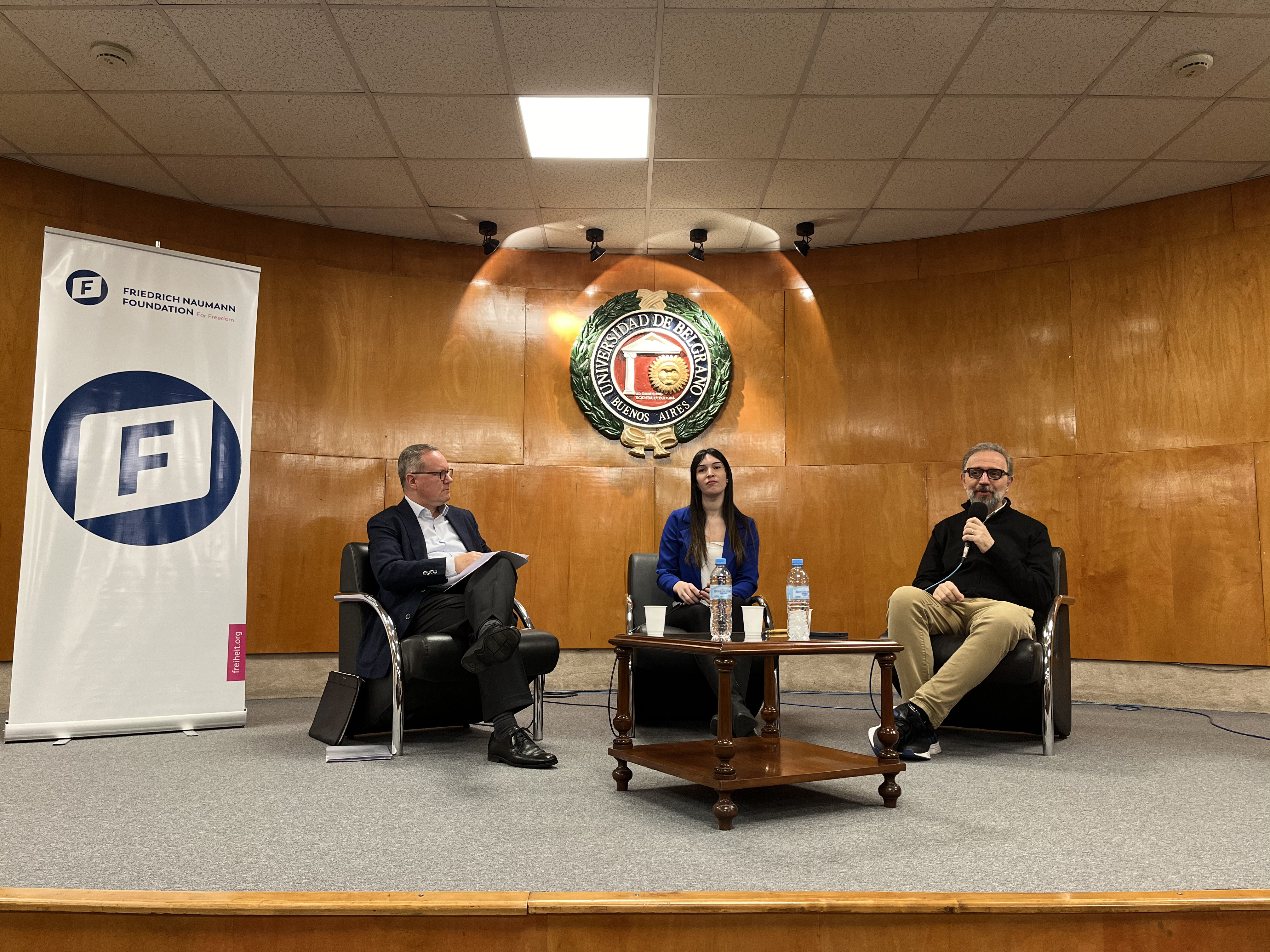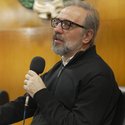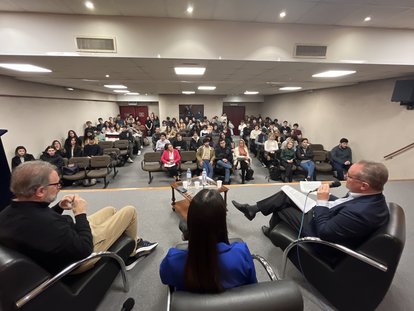European Union
A New Europe? Analysis of the 2024 European Parliament Elections

Dr. Hans-Dieter Holtzmann, Project Director of the Friedrich Naumann Foundation in Argentina, Brazil, Paraguay and Uruguay, and Gustavo Marangoni, a distinguished political analyst and university professor.
© Friedrich Naumann Foundation For Freedom in Argentina, Brazil, Paraguay and Uruguay.The Universidad de Belgrano was the venue for a crucial dialogue aimed at understanding the implications of the recent European parliamentary elections. Under the title A New Europe?, Dr. Hans-Dieter Holtzmann and Gustavo Marangoni provided a detailed analysis of the 2024 European Parliament election results, addressing essential issues such as ensuring political stability, fostering a growth agenda, addressing immigration, and fighting populism in the region.
The meeting featured the presentation of María Lucrecia Córdoba and the moderation of Martina Nicastro, both students of the aforementioned study house and, currently, interns of our counterpart CESCOS of Uruguay.
Dr. Hans-Dieter Holtzmann began his presentation by highlighting the resilience of the democratic and pro-European parties in the European Parliament. Despite the rise of the far right, the Christian Democrats, Social Democrats, Liberals, and Greens still hold a clear majority with 454 seats out of 720. This fact sends an unequivocal message not only to Europe but also to Latin America, affirming that the European Parliament remains a bastion of stability and continuity in an increasingly uncertain world, Holtzmann stated.
"Populism, regardless of its political orientation, represents a latent threat to democratic values."

Gustavo Marangoni, on his part, offered a detailed analysis of the migratory phenomenon and its impact on European politics. He emphasized the need to listen to voters who have turned to extremist parties, warning that ignoring them could lead to further advances by these movements.
Likewise, Holtzmann underscored the importance of effectively addressing immigration challenges by faster but also more demanding integration. Marangoni warned that populism, regardless of its political orientation, poses a latent threat to democratic values. In this context, he stressed that Europe’s experience should serve as a key reference for Latin America, where populism is also eroding the foundations of democracy.
The event concluded with a reflection on the future challenges facing the European Union. Holtzmann identified three key priorities: first, strengthening European unity in the face of systemic competition from China and the United States; second, improving immigration policies; and third, promoting international cooperation, particularly with regions such as South East Asia and Mercosur. According to Holtzmann, the decisions made by the European Union in the coming years will have a lasting impact on both Europe and Latin America.
"It is crucial that the free trade agreement between the European Union and Mercosur be concluded as soon as possible."

Young people are increasingly present
The relevance of this session was not only in the caliber of the speakers but also in the active participation of more than 120 students from various fields of study. This level of attendance reflects not only an interest in international political issues but also the importance of spaces for exchange, where active listening becomes a fundamental value for building knowledge and enriching debate.
As Marangoni aptly pointed out, strengthening political centers is essential to counteract the rise of extremism, and it is in forums like this that the ideas and solutions that will shape the future of our democracies are forged. In Holtzmann's words, stability and continuity are not merely concepts but pillars upon which to build a Europe capable of confronting global challenges with firmness and determination.
In the face of growing challenges, there are answers from liberalism

The defense of democracy, respect for human rights, and the promotion of a social market economy are fundamental values to guide Europe through uncertain times. For solutions to have a lasting impact, it is essential to continue promoting spaces for international exchange, such as the one held at the University of Belgrano.
The plurality of voices not only enriches discussions but also strengthens our democracies, making them more resilient to the threats they face. Every opportunity to listen, debate, and reflect is an opportunity to find new solutions to the challenges that confront us, both old and new. As committed actors, we have a responsibility to continue fostering these spaces for dialogue, knowing that only through mutual understanding and collaboration we can build a more prosperous and free future.

